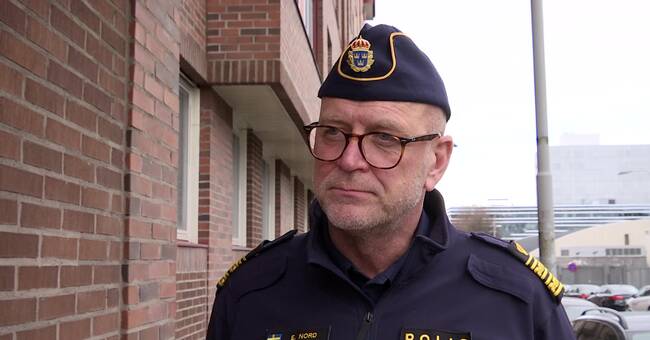Already after Thursday's shooting, Erik Nord informed the chairman of the municipal board, Axel Josefsson, and the city director Eva Hessman about the development.
- Then I get with both politics and the administration. It is good if they understand that we now see an elevated temperature, says Erik Nord.
The police are now talking about "mode red" to describe the level of conflict between the criminal networks. And later today, a decision will probably be made about what is called a special event.
- What makes the situation so serious is that we assess that the risk of continued violent crime is relatively or even very high, says Erik Nord.
That sounds extremely serious. Should the public be concerned?
- Both yes and no. It is always dangerous with shootings in public places and it has happened that people have been shot by mistake. So you can not say that it is risk-free. There is definitely a risk. But you should not exaggerate the whole thing either, says Erik Nord.
"Hope for a quick end"According to Göteborgs-Posten, the conflict began on Bäckebolsvägen in Hisings Backa on 12 August, when two men believed to belong to the Backagänget fired shots at people in a family network from Angered after a fight at a petrol station. When offers of a settlement were not accepted, revenge soon came in the form of a shooting on Akkas Gata. And so it has continued - most recently with a shooting on Friskväderstorget.
The police say they have a good picture of which individuals are involved.
- Yes, we think we understand what this is about. But then there are many further down in the various networks who do things, without knowing the background themselves. But yes, we understand what the central figures are, says Erik Nord.
He hopes to put an end to the conflict quickly, but does not even want to say how much resources are allocated for this.
- No, it does not help us if such information becomes public. But we have great resources. We are 1,500 employees in Greater Gothenburg alone, plus several hundred in the investigation and operational units. We are trying to get rid of as many as we can now, he says.

